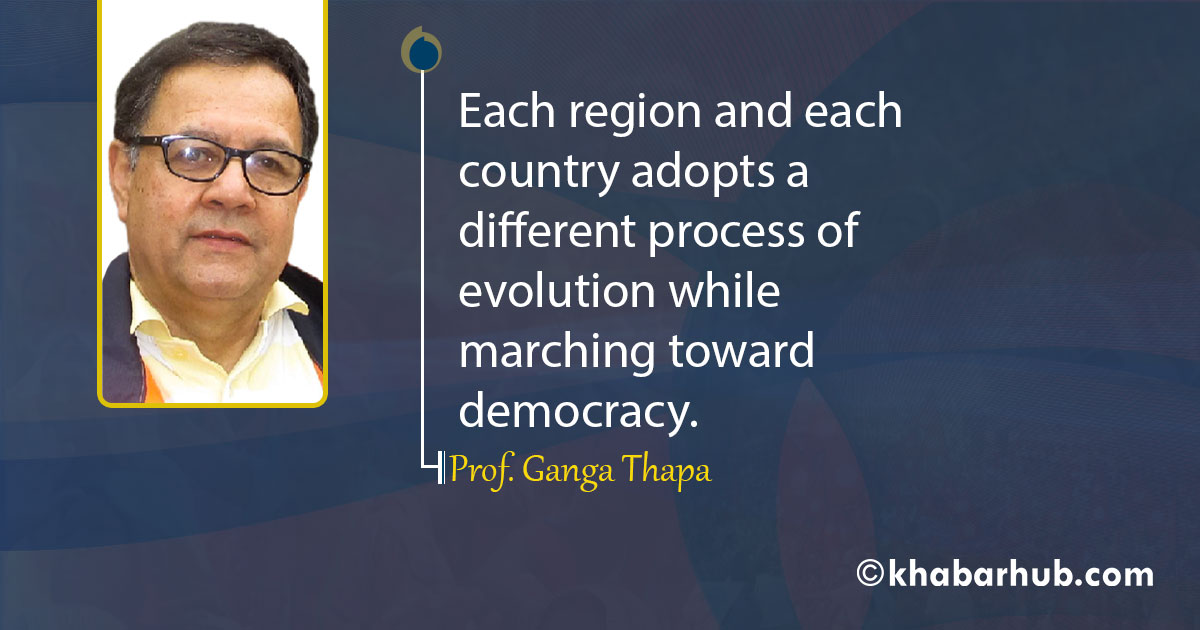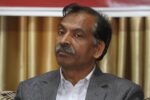If one accepts the premise that a democratic regime provides a system where free and equal citizens may participate in their own governance and make the ruling power accountable to them, pluralists would still argue that a decentralized polity enables the people to participate and work fruitfully with one another on common projects, paves the way for effective citizen control over the political agenda or public policies and eventually strengthens the local civic competence that recognizes every person as a full-fledged citizen.
It has to be noted that each region and each country adopts a different process of evolution while marching toward democracy. There is virtually no common denominator for holding power; however, the relevant case studies provide a great deal of information on experiences of distinctive legacies that applied their foreign policy in ways which were fit for the prevailing indigenous circumstances.
It is the political virtue, at least in part, a central aspect of a well-ordered society and it is supposedly compatible with the substantive conception of the good, justice, fairness and tolerance.
Politically, Nepal is carved into 7 provinces, 77 districts, and 753 local bodies. The administrative division from the central level to the local level like this makes it obvious that the public interest is centrally placed. Rawls (1990) admits that democratic institutions affirm a particular set of virtues. It is the political virtue, at least in part, a central aspect of a well-ordered society and it is supposedly compatible with the substantive conception of the good, justice, fairness and tolerance.
For any liberal democratic state to be effective, among many other factors, there must be a vibrant and vigilant public participation which informs the shapes of political decisions on those issues of common concern will take.
Public participation at all level is the foremost need of federal autonomy at different levels of political governance. Plural democracy requires full protection to all citizens, mutual forgiveness and acceptance amongst political actors, wholehearted sincerity and openness to continuing the dialogue with the hope of inculcating a democratic peace culture, and professionalism to ensure equal justice for a peaceful settlement of the conflict arisen due to ideology, separatism and/or politics – is perhaps to be understood as a result of triumph of liberal democracy, like Huntington, Fukuyama, and Whitehead puts it in pursuit of successful consolidation.
As we discuss the ways to promote pluralist liberal democracy which was often found by the end of the twentieth century as the most desirable form of the government, most local governments in the world have legally been freed from the central control – not really being independent, still having a distinct identity sufficient to consider transformation of political and social essence in tune with the federal tendencies.
As we turn our attention toward the new democracies of whichever political stripe in the world, what may be noted is that the local governments have lately gained so much visibility and power.
Throughout their discourse over the concept of politics, Foucault and Colin (1980) have strived to empower the individual.
The pluralist model that places political education at the core was largely developed in the 1950s and 1960s by Robert Dahl (1961). It envisages a set of ideals and practices to adhere in consonance with the longing for nurturing a genuine democracy to enable engagement in various public activities.
But, democracy relies on tangible political institutions and modes of representation, especially on its ability to give a greater voice to those who have for centuries been marginalized by cultural traditions and political practices. It endeavors to address the needs, aspirations, opportunities, and limitations of society in a responsible manner.
Throughout their discourse over the concept of politics, Foucault and Colin (1980) have strived to empower the individual. They are particularly interested in the public domain that has abandoned the state-centered conception of power.
They perceive the significance of power all over and therefore, they plead for such governance that enables every citizen to be an equal participant and does not privilege a particular group or a chronic issue. According to some political scientists. Foucault’s neoliberalism is, in simple terms, is not laissez-faire, but permanent vigilance, activity, and intervention, which will, in turn, widen the participation of ordinary citizens and inspire political regimes to operate democratically in practice.
At the same time, globalization has generated a considerable degree of interests in various forms of democracy and it has helped in having a fairly accurate understanding of the international system.
The reality of international relations reveals the status of a nation while constituting the rules of international law that are almost exclusively instrumental in reshaping the dynamics of foreign policy operations through which the bottom-up approach has evolved to examine the international system that should address the dangers of diverse interests and their potential worth for the advancement of overall strategic interests.
A new phase and a new legal basis for functioning of the state power to offer a formal system for the local authority, local politics or local government that is largely conducive to pluralism and representative of competing interests, including the establishment of local governance and politics, would be critical for the democratic development in which they may always work for promotion of the well-being and protection of the local residents.
(To be continued…)
Views expressed in this article are the author’s own and do not necessarily reflect the stance of Khabarhub.









Comment